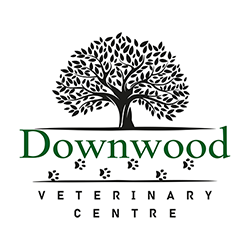Environmental Sustainability Policy
Our mission is to provide the highest standard of veterinary care possible within the resources available, taking account of our clients’ wishes, keeping welfare at the core of our work, and being mindful of how our choices affect the environment, whilst providing affordable Veterinary care.
We have taken guidance from “Vet Sustain”, an organisation which exists to support veterinary professionals in driving towards a more sustainable future and we have also taken advice from Davies Veterinary Specialists, who were the first practice to be awarded iiE’s top level green accreditation in 2019.
- Our environmental commitment
‘We support Vet Sustain’s veterinary sustainability goals. We acknowledge that our veterinary activities, services and operations have an impact on the environment and have identified key impacts related to our business that contribute to our environmental and carbon footprint.
- Key Aspects
We do understand the impacts of our practice activities and we do regularly hold open discussions / research, how we can reduce our footprint, whilst still proving excellent patient care. Some of key areas are listed below:
- Use of fossil fuels (i.e. oil and gas usage)
- Use of electricity
- Waste generation & disposal
- Use of anaesthetic gases
- Use of water
- Carbon emissions from transport
- Consumption of raw materials (including prescribed drugs, medical plastics, needles)
- Use of parasiticides and antimicrobials
- Actions
- We actively take steps to reduce our carbon footprint and support sustainability through:
- Reducing fuel consumption by switching off equipment and lights when not in use. We have also installed air conditioning units in most rooms which are more energy efficient than heating the entire building.
- Implementing a strong waste and recycling policy, we have recently completed a waste audit and from that, have improved our waste segregation and improved recycling.
- Ensuring the safe disposal of waste products, such as antimicrobials and biohazardous materials, in compliance with regulations. We have now put a “medicine amnesty” box n Reception at both branches to encourage owners to return unused medicines and have scheduled regular monthly social media posts to keep owners informed.
- We are committed to provide low flow anaesthesia where safe to do so, to reduce the release of anaesthetic gases, which contribute to greenhouse gas emissions, whilst reducing the use of sevoflurane
- We try where possible, to reduce our water usage, by utilizing alcohol-based hand scrub for sterile procedures, ensuring full loads of washing are done, we use a water distiller to provide us with distilled water, which reduces are plastic usage. We use the waste water from the autoclave to water the garden or use it in our buckets to clean.
- This year, we have looked at how we can reduce the amount of companies/ orders we place, to minimise transport emissions and ordering time. We have streamlined our ordering system and using less companies.
- We have a new green team within our practice to help drive positive change. Our new team of champions consisting of (1 Vet, 1 VN and a Receptionist) to therefore include views from the whole team. We aim to meet every 3-6 months. In the meantime any suggestions or ideas can be given to any member, who will then inform the rest of the group.
- We promote health plans and the responsible use of antimicrobials and parasitic ides. We have different options available in the plans to suit the individual needs of the patient.
We are committed to reducing our environmental impact through a journey of continual improvement by working through the Royal College of Veterinary Surgeons Practice Standards Scheme. Our commitment to the environment and doing what we can to reduce our impact.
Although we have dramatically reduced our paper usage, we now try and send all invoices, product information and brochures via email. The aim for 2025/2026 will be to introduce electronic consent forms and pre-operative forms instead of requesting the owner to print them and return them on the morning of the procedure.
Out of date medications or unused medication?
In order to reduce the risk of antimicrobial resistance, leftover and un-used antibiotics should be disposed of safely to prevent hoarding, inappropriate reuse or disposing of them via domestic waste streams.![]() Antimicrobial resistance is one of the biggest global health threats of our time, and we must act, together, to safeguard the use of these medicines and reduce the development of antimicrobial resistance. If not disposed of correctly, antibiotics can lead to environmental contamination, impacting water quality and wildlife, promoting the development of antimicrobial resistance and putting human, animal and environmental health at risk.
Antimicrobial resistance is one of the biggest global health threats of our time, and we must act, together, to safeguard the use of these medicines and reduce the development of antimicrobial resistance. If not disposed of correctly, antibiotics can lead to environmental contamination, impacting water quality and wildlife, promoting the development of antimicrobial resistance and putting human, animal and environmental health at risk.![]() If you have any unused / out of date medications (tablets, capsules, liquids or creams. Please pop them in to either branch and we will safely dispose of them for you. ( Pet prescriptions only)... no questions asked
If you have any unused / out of date medications (tablets, capsules, liquids or creams. Please pop them in to either branch and we will safely dispose of them for you. ( Pet prescriptions only)... no questions asked ![]()
*information taken from Vet Sustain
